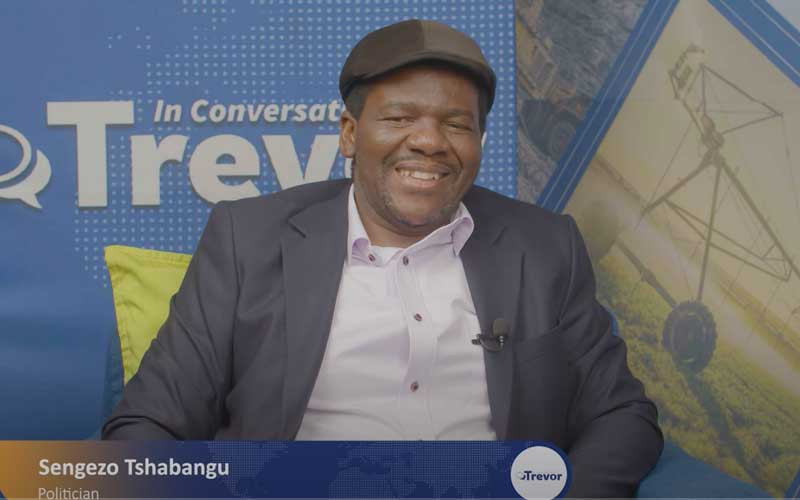
The year 2023, like many election periods, presented a chance for change, a chance for a better Zimbabwe, regardless of one's political affiliation.
Rallies were organised, some were denied; bodies were energised, some were detained. Manifestos were crafted, some imagined. It was a mixed bag of open-field opportunities and restrictions.
History was poised to be written by power-seeking politicians, and on August 26, with the announcement of the election results, many hopes were fulfilled while others were dashed.
For inclusionists and activists, genuine or otherwise, it was a time to celebrate the youthful faces soon to be sworn into public office. Many were new to parliamentary and council business but eager to make their mark on history.
Unfortunately, many of these young politicians were swiftly ousted by one of the most prominent figures in modern Zimbabwean politics, Sengezo Tshabangu.
The 2023 political recalls, initially perceived by many as a bad joke, quickly became a harsh reality. Having recalled 67 legislators and councillors, young politicians, some of whom had just won their first major election, were axed.
This piece will not pass judgment on Tshabangu's actions but rather analyse the impact of the recalls on these young politicians.
The 2023 political recalls which for many started as a bad joke, soon became a painful reality to the victims of the recalls. Having recalled 67 legislators and councillors, young politicians, some who had won their first big election, were axed.
- Mavhunga puts DeMbare into Chibuku quarterfinals
- Bulls to charge into Zimbabwe gold stocks
- Ndiraya concerned as goals dry up
- Letters: How solar power is transforming African farms
Keep Reading
Allow this writer to add before proceeding that this piece will not in any way add value judgements to the man’s actions, rather it will attempt to analyse the effects of the recalls themselves on young politicians.
The mental and emotional toll on the young politicians is evident to anyone paying attention.
Many were young graduates, confident in the prosperity life had to offer, now facing a guaranteed five-year job — an enviable position in a country with high unemployment rates, where the majority of the population is young.
These young politicians hoped to uplift their communities and families through the opportunities offered by public office. After the recalls, however, they find themselves in the same unstable boat as many of their peers: unemployed and, for the victims of the recalls, unemployable.
Choosing to be a politician is a lifelong commitment, both by desire and by necessity. Once one enters politics, it is hard to go back.
The allure of fame, wealth, and status is undeniable, and for those more morally inclined, the prospect of making decisions that could improve the lives of their communities is deeply attractive.
However, the reality is that employing a politician, especially a famous one, is often seen as a risky move.
Many young politicians elected in August 2023 found themselves in high demand for radio, newspaper and other interviews, their every move followed by cameras and microphones. Fame became an unavoidable part of the job.
It was a bit impossible for the young politicians not to be famous. One could say, it came with the job that soon flew.
The job market presents a bleak picture. One of the largest formal employers is the government, and the likelihood of the State hiring an opposition politician who has won a constituency or ward is virtually zero.
Given Zimbabwe's divisive political landscape, the odds of an opposition politician applying for a government job are slim. The non-governmental organisation sector, one of the few that still pays in the highly sought-after United States dollar, faces its own challenges. The ongoing tension between the government and NGOs accused of political bias makes it unlikely for these organisations to hire known opposition figures.
The only remaining option for these young politicians is the informal sector, which already employs millions of Zimbabweans.
While it could absorb a few more, the cost is high. The political recalls have shattered the confidence of many young politicians, both as individuals and as professionals.
They had the courage to dream and work for those dreams, only to have them snatched away.
The recalls have left many questioning their place in politics and whether they belong at all.
Lacking the experience, wisdom, connections and whatever else was needed to manoeuvre the recalls, Zimbabwe might have lost a handful of youthful politicians that might have really made big differences in their communities.
Because the recalls did not just affect the young people, it also impacted them as politicians, having been outmanoeuvred or outplayed definitely hurt. Perhaps it went further than to make them feel that they do not belong. It raised the issue of when it is the right age to enter politics.
Politics in Zimbabwe comes at a high cost, financially and personally. Campaigning requires significant resources, which are often beyond the reach of women and young people in a patriarchal society. They do not have the resources to finance their campaigns, slaughtering cows, buying alcohol to lure young voters and mealie meal.
Mabvuku-Tafara MP Scott Sakupwanya can testify that having money for a political campaign certainly helps.
The economic implications of the recalls have left many young politicians reconsidering their decision to enter politics.
They may now feel they should have waited until they had built stable financial enterprises to support themselves and their families. The recalls have robbed Zimbabweans of the opportunity to be led by young people and denied these young politicians a chance to lead.
Whether they are feeling depressed, bitter, vengeful, or starting to heal, the reality is that the recalls have had a profound impact on their lives and the political landscape of Zimbabwe.
- Kombora is a blogger, writer and development practitioner and an alumni of the Fredrich Nauman Foundation Womentorship programme. She writes in her personal capacity.










